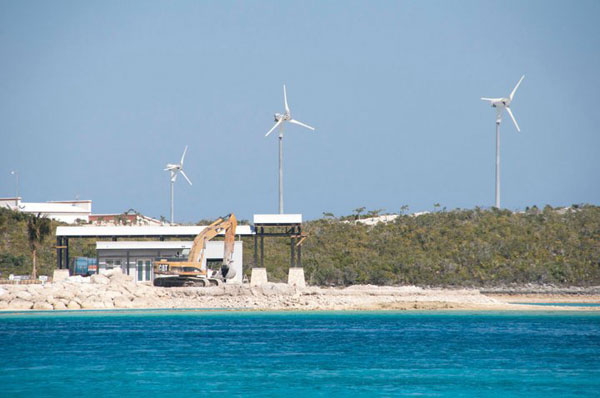

The Rosenstiel School of Marine and Atmospheric Science (RSMAS) is introducing a new master of professional science (MPS) degree program in the fall that will focus on coastal sustainability.
This program will consist of courses that relate to the ability of an area or coast, typically an island, to be self-sufficient and ultimately not be reliant on other sources of energy or food.
“This is a very liberatory model that we are developing,” said Amelia Moore, the program coordinator specifically for coastal sustainability. “We hope that people will come who want to help island nations or island people become self-sufficient.”
Obtaining any degree within the MPS program typically takes about 15 months. This is usually divided into two semesters of classes followed by a three to six month internship. The coastal sustainability degree will also follow this track.
Though the time frame is short, the rigor of the course load is intense. A typical graduate program usually requires students to take nine credits. Most MPS programs require 12 credits.
“We warn them that this is going to be their life,” said program director Jill Richardson who oversees the entire MPS program. “The more they immerse themselves in the community, the better in the long run.”
There are three sets of degree tracks under the master of professional science: marine biology and fisheries, marine affairs and meteorology. The coastal sustainability track falls under the marine affairs category, which has the most lenient application requirements of the three categories. The only prerequisite needed apply to any marine affairs track is a Bachelor of Arts or a Bachelor of Science.
“I would say it is pretty open,” said Kait Birghenthal, a graduate student working on a degree through the marine affairs track, specifically marine conservation. “There are people in my classes that already have graduated and have decided to come back.”
There are currently 150 applicants for the fall 2012 semester. There are no more than 10 graduates per track, which allows for a personalized, student-focused education and really develop and good relationship with faculty and staff.
“The RMAS professors are really good because they’ll always help you out,” said Petter Bauer, a graduate student currently on the marine conservation track. “They are resources that are always available to you. You get so many opportunities to hang out with them outside of class and really get to know them.”
The more unique aspect of this track is that students spend their first semester abroad in the Bahamas at the Cape Eleuthra Institute. On the island, they will become involved with the sustainability projects on the island, including solar power and aquaculture, which involves the farming of aquatic organisms.
“We do think that there is a growing field for these systems,” Moore said. “We’re hoping to use these systems to use improve their own situations.”
Deadline for applications into the MPS program for fall 2012 is June 1. Undergraduate performance, previous work experience, GRE scores and letters of recommendation are all considered when applications are evaluated.
“I don’t really see the drawback. It’s really been a great experience. You don’t always get that in different places. That’s worth everything,” Birghenthal said.





